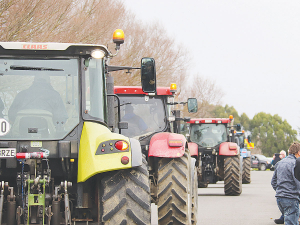The Tractor and Machinery Association (TAMA) conference, recently held in Christchurch, took a closer look at how the agricultural machinery industry was tracking in these troubled times.
With sales of new tractors always acting as a barometer for the rest of the industry, statistics specialists Agriview went over the figures. Its analysis showed that during the last decade or so, a low of 3,321 tractors were sold in 2012 and a high of 4,640 units sold in 2019.
Tractor sales dropped to 4,192 in 2021 – no doubt constrained by Covid-induced poor component supply, low production figures and freight problems.
Looking at the current year to the end of July, the rolling average sat at 4,529 units. This is quite close to the peak of 2019. Meanwhile, the year-to-date figures hit 2,443 units, compared to 2076 for the same period in 2021.
Looking at these numbers in more detail, the North Island contributed 1,578 units (+12.6%), while the South Island sat at 845 units (+25.4%). The former showed a market increase of 25.3% in Waikato and a climb of 41.5% in Taranaki. However, the Manawatu and Wairarapa regions recorded a negative trend down by 5.8% and 6.2% respectively.
Further south, standouts included South Canterbury (+36%), Southland (+48%) and Otago climbed by a whopping 52.4%.
The breakdown of those tractors sales saw that the key 100 to 180hp sector was up by 29% (1,170 units), 180hp+ was up 20% (181 units). Meanwhile, the under 40hp and 40 to 100hp sectors, showed climbs of 4% (499 units) and 6% (573 units) respectively.
In the machinery arena, 2021 showed good gains on the previous year with balers and hay tools hitting 1,825 machines, harvesters jumping from 10 to 25 units, while the tillage and seeding category had dropped by around 50 units to settle at 392 machines.
Sprayers and slurry tankers was a mixed bag, the former growing by around 120 units to record 1,588 units, while the latter dropped by a similar number to finish at 575 machines.
In total, 4,788 machines were sold in 2021, compared to 4,119 units in 2020 – a significant rise of around 16%.
While 2021 industry figures were undoubtedly stymied by supply and shipping constraints, industry sources suggest that 2022 will finish at higher levels in both tractors and machinery.
However, distributors are already suggesting that some categories of implements are in short supply or will arrive too late for the advancing season – likely leading to order cancellations.
Without doubt, the next 12 to 18 months will see continued global disruption to the supply chain, not least due to restricted component supply issues, most recently attributed to the Ukrainian conflict.
In addition, shipping costs are unlikely to fall to any great extent. Shipping schedules are expected to remain erratic, while labour shortages, inflation and higher finance costs will all have a major influence on the final numbers in the 2022 sales year.



















